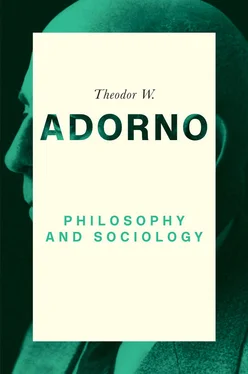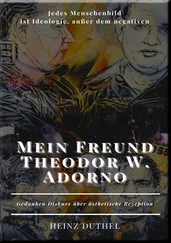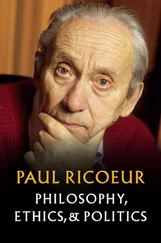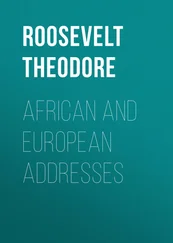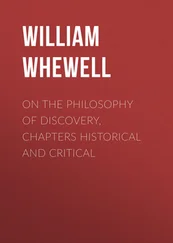Now I have just said that you will not find the term ‘sociology’ in Kant, a term which did not yet exist in his time and was first used by Auguste Comte, 19about whom we shall have more to say shortly. However, the idea of sociology itself is actually earlier and derives from Comte’s extremely insightful and important teacher, Count Saint-Simon. 20But the principal writings in which Saint-Simon actually lays the foundations of sociology were only composed and began to exercise an influence when Kant was very advanced in years, or indeed only after his death, and he practically knew nothing about them. And the extraordinarily rich body of material on sociological issues that had emerged in the context of the French Enlightenment, especially in the writings of D’Holbach and Helvétius, 21but also among the so-called Ideologists, 22can hardly have been known to Kant either. The creation of sociology as a specific discipline is a relatively late phenomenon. We can say that this discipline comes to reflect upon itself as a kind of science only very late in the day, and there are very particular reasons why this is so – something that I shall also have more to say about in one of the coming lectures. But of course, in substantive terms, we are talking about something here which is already incomparably older, and I think it is actually a very good idea for you to dispose, once and for all, of the notion that sociology is a young science, even though we constantly encounter this claim, and one which is repeatedly defended by sociologists of all people. The precise point of time at which a science becomes independent, expressly reflects upon itself, or sticks a label on itself and the point at which such a science arises are two things which we can distinguish, though not in such a way as to conclude that a science really exists only once it has given itself its own name. And we can indeed say that, in this broader sense, sociology as a discipline is as old as philosophy, and that especially among the greatest representatives of ancient philosophy that separation between sociology and philosophy which will perhaps seem self-evident to many of you is not yet present at all.
When you read Kant you will constantly encounter a vigorous repudiation of psychology, and there is a specific reason for this. For Kant’s philosophy is essentially an analysis of the faculty of knowledge – in other words, of the faculty of human consciousness itself. Now human consciousness, as it presents itself to Kant, is bound up with actual, living human beings, and in a certain sense is also itself a part of the empirical world. The empirical subjects or empirical human beings, as psychology deals with them, form just as much an object of our experience as, for example, are things in space or anything else. But Kant is seeking to identify the constitutive factors of experience in general, and in his analysis of consciousness he cannot properly therefore assume this consciousness insofar as it is itself an empirical fact to which I stand in relation. You have to remember that the British philosophy of his time, which represents one factor in the Kantian parallelogram of forces, 23and particularly the philosophy of Locke and Hume, understood itself as a kind of psychology, as an investigation of the elements of consciousness. 24And the fact that this British psychology, this British philosophy, was empiricist in character, and thus essentially denied the prevailing conceptions of valid knowledge as such, springs directly from the way this philosophy starts from our actually existing and transient empirical consciousness. But Kant wanted something very different; he specifically wanted to salvage eternal truth. But he wanted to salvage this precisely through an analysis of human consciousness. That, of course, is why he was particularly allergic to any conception of consciousness or the mind which would have turned this consciousness into something merely factual, simply into a piece of empirical reality; and that is why – in accordance with Freud’s famous thesis concerning the pathos of the smallest differences 25– he always strove with a quite particular passion to distinguish his own analyses of the mind, of consciousness, or of whatever else it might be, from psychology in the most emphatic possible way. With highly questionable success, it has to be said, for, in spite of Kant’s express and constantly repeated claim (especially in the second account he provides of his theory of knowledge, namely the Prolegomena ) that his analysis of consciousness has nothing to do with an analysis of the actually given empirical human mind or empirical human soul, 26it is possible to show that he is nonetheless constantly forced to make use of particular expressions and particular considerations that are undeniably derived from the real actual life of particular individuals, from the psychological life of particular individuals. Thus the famous unity of consciousness, the synthetic unity of apperception, which is ultimately the most important concept in Kant’s whole philosophy, 27essentially derives simply from observing that what is called the ‘I’ is a unity only because it is aware of itself as something identical in the horizon of time – in other words, through the process of recollection, presentation and anticipation. Thus Kant’s principle of identity itself is, if you like, actually drawn from psychology, which is why it also already involves the dimension of time; and, precisely because it is temporal in character, consciousness is determined in the first place as an empirical consciousness. Here I am merely drawing your attention to one side of the issues involved. For we are talking about an extraordinarily complex and many-sided question. Nor with these observations do I simply wish to tie Kant down to a merely psychological thesis. I have already mentioned that the psychological and the anti-psychological themes in Kant’s thought work in some friction with each other, but here I just wanted to show you that the dividing line between pure Kantian philosophy and the realm of psychology is not nearly as clear, as sharp, or as unambiguous as Kant himself intended. And while the full force of the central element in Kant’s critique of reason, namely the deduction of the pure forms of the understanding, 28specifically and originally derives from the way that this deduction clings so closely to the experience of concrete and individual human consciousness, i.e. precisely through a certain proximity to psychology, it is surely remarkable to note that Kant, with his inimitable perceptiveness and his inimitable honesty and intellectual integrity, actually points out that he himself thereby runs the danger of making transcendental philosophy appear to depend upon the empirical; and in a sense one can understand the development of Kant’s philosophy as an ever more emphatic turn against the perspective of psychology. Thus in the Critique of Practical Reason you will discover much more invective against any possible kind of psychological interpretation than you can in the first edition of the Critique of Pure Reason , where Kant was not yet quite so strict about these things – and this from a deep sense that any such static and absolute separation of the transcendental sphere of purely intellectual processes from the psychological sphere that involves the temporal embodiment of mind cannot actually be carried out. Now if Kant so strongly repudiated the real individual human subject in contrast to the pure ‘I think’ that accompanies all my representations, 29i.e. in contrast to consciousness as a pure formal unity of experience, 30then he would also clearly have to reject any reflection on society, namely sociology, as having any grounding or constitutive force as far as philosophy is concerned. For society, after all, is in fact something like a functional connection, a functional connection that obtains between individual empirical human beings, which would then indeed also appear as factors within a constituted field of knowledge. When Kant speaks in the Prolegomena of ‘consciousness in general’, 31he does not actually mean – as the expression tends to suggest, and I believe for good reason – the consciousness which distinctively belongs to all human beings; that is to say, he does not mean something social, or a social consciousness, since for Kant the qualification ‘in general’ means consciousness as such, namely a consciousness without which something like an intrinsically coherent experience or an intrinsically valid case of knowledge could never be entertained at all. But in this famous formulation of ‘consciousness in general’ you may notice once again, and by way of anticipation, that it was not so easy for Kantian philosophy either to accomplish this separation from sociology, admittedly a discipline which did not specifically exist as sociology in his time. For what, in the final analysis, is this ‘consciousness in general’? If you try and grasp what this ‘in general’ means, you will probably be able to think only of a consciousness that is not your consciousness, or my consciousness, or anyone else’s consciousness but consciousness in general – in other words, a consciousness common to us all. The logical extension implied by the expression ‘in general’ already includes the ‘we’ in its very meaning, or, if you like, already implicitly includes society, although Kant would not be able to ascribe central philosophical significance to society precisely because it belongs to the realm of the constituted and enjoys a merely derived status. Now Kant certainly did recognize the significance of empirical psychology, and he would – I think it is safe to say – probably also have been able to recognize the significance of an empirical sociology. In the period when Kantian thought developed, which was still the period of Enlightenment and bourgeois culture in its ascendant phase, if I may be allowed to use such expressions, thinkers had certainly already sought to protect the traditional concept of philosophy from being confused, contaminated or conflated with the merely empirical; however, they did not yet display that exaggerated fear of the empirical that has become widespread today and serves in a way to complement that blind enthusiasm for ‘the facts’ and everything empirical which is equally widespread these days. This yawning gulf between extreme fear of the factical, on the one hand, and an intoxication or orgiastic obsession with the facts, on the other, can sometimes make it look as though we of the older generation are the reckless ones, while the younger generation seems to display the sobriety that we sought in vain to acquire. 32But things were not yet like that in Kant’s time. On the contrary, in the context of his critique of reason there is still plenty of room for psychology – and, I might plausibly add, for sociology too – as long as we make the following qualification: ‘All this belongs to the realm of the constituted; none of this may provide your starting point of departure, if you are trying to justify the fundamental principles of philosophy itself.’
Читать дальше
